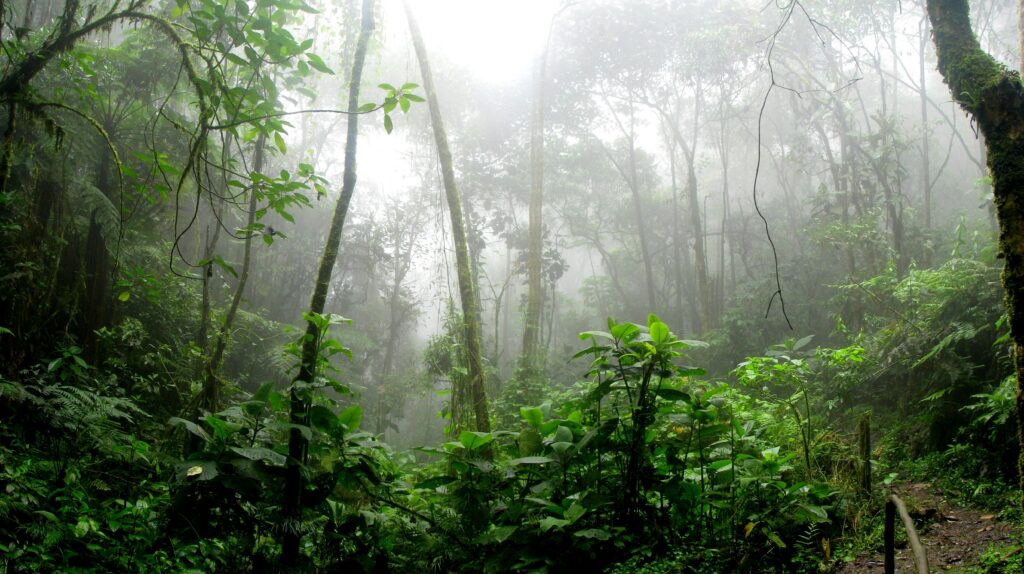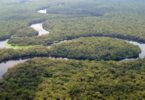Tropical rainforests are some of the most vibrant and diverse ecosystems on Earth. Often called the “lungs of the planet,” they play an essential role in maintaining the balance of our climate, supporting wildlife, and providing resources for millions of people. These lush forests, found near the equator, are home to a staggering variety of life and are crucial to the health of our planet. But what exactly makes tropical rainforests so special? Let’s take a closer look.

1. A Home for Incredible Biodiversity
One of the most remarkable things about tropical rainforests is the incredible diversity of life they support. Though they cover only about 2% of the Earth’s surface, these forests are home to over half of the world’s plant and animal species. From the tiniest insects to towering trees, tropical rainforests offer a home for countless species.
The dense layers of the rainforest provide habitats for animals, birds, and insects, many of which are found nowhere else on Earth. This environment is also home to iconic creatures like jaguars, orangutans, and colorful toucans. What’s even more amazing is that many species in tropical rainforests have developed unique adaptations to survive in these specialized environments. In essence, rainforests are a haven of diversity, making them one of the most fascinating ecosystems on Earth.
2. Crucial for Climate Regulation
Tropical rainforests play a critical role in regulating the Earth’s climate. Through a process known as transpiration, trees release water vapor into the atmosphere, which helps form clouds and promotes rainfall. These rainforests are also essential in controlling the amount of carbon dioxide (CO2) in the atmosphere. The trees absorb CO2, helping to mitigate the effects of climate change.
Without tropical rainforests, global CO2 levels would rise significantly, speeding up climate change. These forests help maintain the balance needed for a stable climate, making them indispensable in our fight against global warming.
3. Essential Ecosystem Services
Tropical rainforests provide a wide range of services that are vital to both nature and humanity. They supply oxygen, fresh water, and many resources that are essential to life. For example, tropical rainforests are the birthplace of many foods we rely on, including bananas, cacao, and coffee. They also provide medicinal plants, many of which are used in modern medicine.
Rainforests also serve as natural water filters, reducing soil erosion and regulating water flow into rivers and lakes. Without the protective role of the rainforest, these water systems would face flooding, pollution, and contamination, affecting both people and wildlife.
4. Threats to Tropical Rainforests
Sadly, tropical rainforests are under constant threat. Human activities like deforestation for agriculture, logging, and mining are rapidly reducing the size of these vital ecosystems. Every year, millions of acres of rainforest are lost, threatening not only the species that call them home but also the broader environment.
Climate change is also putting additional stress on rainforests, causing shifts in their ecosystems and making them more vulnerable to destruction. Protecting these forests requires urgent action to reduce deforestation and implement sustainable practices that will allow us to benefit from their resources while ensuring their survival.
5. The Future of Tropical Rainforests
The future of tropical rainforests relies on all of us. Governments, organizations, and individuals must work together to protect these ecosystems. Solutions like reforestation, sustainable farming practices, and empowering indigenous communities are all critical to ensuring the survival of rainforests for generations to come.
Tropical rainforests are more than just a collection of trees; they are complex, living ecosystems that support an immense variety of life. From helping to regulate the climate to providing essential resources, they are vital to the survival of both nature and humanity. Protecting them is an investment in the future of the planet—one that will benefit all of us.








